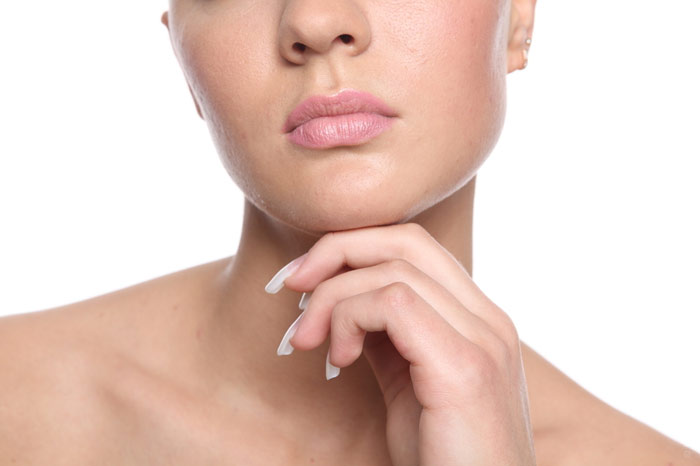Everyone wants to look their best, and the face is the first thing most people notice. Here are some effective ways to keep it looking young and fresh-looking.

Get More Sleep
Getting more sleep should be the first thing on your list. Yes, sleep. One of the most obvious signs that you’re not getting enough sleep will manifest itself in your skin. Inflammatory conditions, including acne, will persist despite your best efforts to “cleanse” away the condition.
Sleep is the “magic pill” you need as it helps your body repair itself, and reduce inflammation system-wide. In other words, if you’re not getting enough sleep, you’re increasing inflammation in your body, especially your skin.
And, with chronic, low-grade, inflammation, you simply cannot solve most skin problems. When you sleep, another amazing thing happens: certain hormones rise and help the body repair itself. Without this process, stress accumulates and you can’t repair damage done during the day, including damage to your skin. As stress accumulates, and accelerates the aging process.
Aim for at least 7 to 8 hours of sleep every night, and make sure it’s good-quality sleep. Poor sleep is just as bad as not getting enough sleep. In fact, some research suggests that quality is more important than quantity.
To get the best quality sleep, stop using electronics at least 1 hour before bed, take up meditation before bedtime, and try to relax into sleep. Make sure you’re getting enough activity during the day to wear yourself out so that you can ease into bed at night.
Try not to eat a big meal right before bed, and minimize or eliminate alcohol consumption prior to bedtime as this might prematurely raise cortisol during the middle of the night (waking you up or disrupting your sleep).
Clean Up Your Diet
Cleaning up your diet is the next step in the process. Most people know they need to eat well, but they don’t always know what that means. For most people it means getting rid of the junk food – chips, ice cream, pizza, pasta, bread, and other nutritionally dead foods.
Start eating whole foods, minimizing junk, and optimizing vitamins and minerals for your body. Practically speaking, it means eating more nutrient-dense vegetables like broccoli, kale, carrots, and squash. It means increasing your intake of beans and legumes, and adding nuts into your diet.
It means eating more high-quality meats, even red meats (which are an amazing source of heme iron – a highly absorbable form of iron) and organ meats like liver.
It means minimizing sweet fruits and opting for berries instead when you’re craving something sweet.
If you’re unsure about your current health status, ask your doctor for a micronutrient blood panel. This type of panel will test your vitamin, mineral, and amino acid levels at a cellular level. You’ll know whether you’re getting enough from the food you’re eating, and your doctor can make supplement recommendations if you aren’t.
De-Stress
Take a break from work, and other stressful activities, for a while. Or, budget extra time in your day to meditate and clear your mind. De-stressing will do a lot for your skin over time, and it will make it easier to recover when you do have the occasional breakout.
Watch Your Sun Exposure
A little sun is fine. In fact, it’s necessary to make vitamin D naturally. But, too much sun is bad for your skin and may accelerate the aging process. It can dry the skin out, make it tough, leathery, and cause irreversible damage. It can also cause burns, and in some rare cases, cancer.
At the same time, most people need between 10 and 15 minutes of direct sun a day to make up to 20,000 IUs of vitamin D.
But, dark-skinned people need more time in the sun – up to 5 times more sunshine, depending on how dark your skin is. Melanin (pigment that gives people natural color) is a natural sunscreen, so you shouldn’t be totally afraid of the sun if you’re brown or black-skinned.
If you’re lighter, aim for a few minutes in the sun and then use antioxidant-rich lotion on your skin to help re-vitalize. You could also use sunscreen on your face before you head out, but don’t completely eliminate sun from your routine as you do need it.
Go See Your Doctor
When all else fails, visit your dermatologist or a plastic surgeon. Is it drastic? Not always. According to Dr. Leonard Miller, MD, dermal fillers are actually quite common and they’re not really a surgical procedure in the traditional sense.
They’re meant to fill in wrinkles and smooth out lines in unusually difficult places that cast unsightly shadows and make you look older than your biological age.
A good doctor is one that recognizes the fact that we all get old at some point, but that “graceful” doesn’t always mean “natural.” So, if you’ve done everything you can do with diet and lifestyle, it might be time to kick things up a notch. And, really, at some point, most people will need to go this route if they want to stay young.
Dr. Miller is a board-certified plastic surgeon with two Boston offices. He serves on the faculty staff of the Harvard Medical School with full operating privileges at Beth Israel Deaconess Hospital, New England Baptist Hospital (Chief of Plastic Surgery), and the Massachusetts Eye and Ear Infirmary. Dr. Miller is a member of the American Society of Plastic Surgeons, The American Society of Aesthetic Plastic Surgeons, The Royal College of Surgeons of Edinburgh and numerous national, regional and international societies. Actively involved in the development of new skin care technologies and cosmetic products, Dr. Miller has been published on a wide variety of subjects and is invited to lecture around the world as a highly regarded plastic surgeon.










